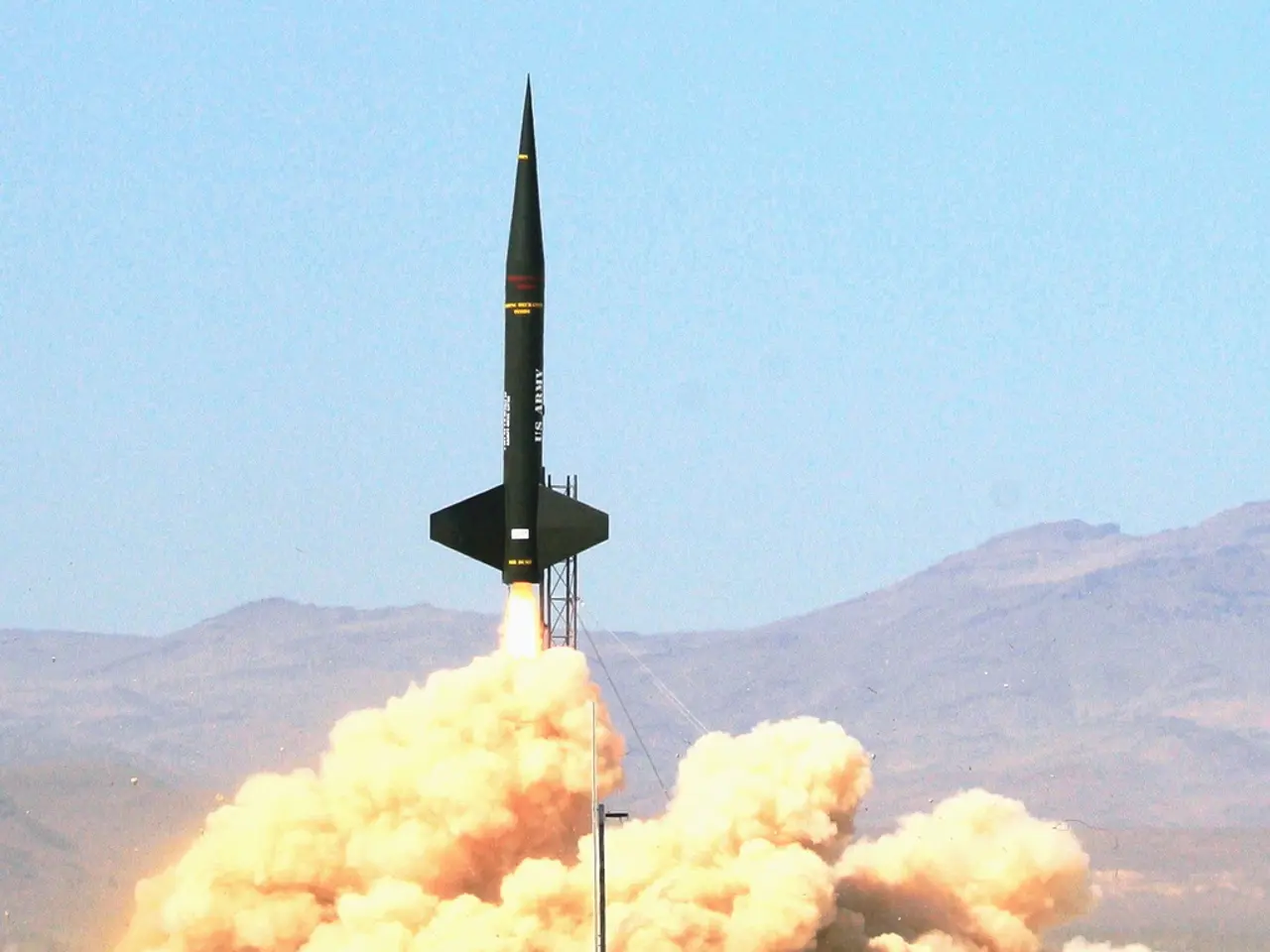Oil prices drop as U.S. alters stance on Russia amid Ukraine conflict
In the ever-evolving landscape of global oil markets, recent developments have brought about a complex interplay of sanctions, geopolitical tensions, and changing production dynamics.
Crude oil prices dipped on Thursday, with WTI Crude Oil for September delivery currently standing at $63.86 per barrel. This decline could be attributed to several factors, including the ongoing sanctions on Russian oil exports.
The United States has been at the forefront of these sanctions, aiming to curb Russia's oil revenues. As of August 2025, the US maintains strong sanctions on Russian oil exports, with a 25% ad valorem tariff imposed on goods imported from India, a major buyer of Russian oil. These measures are aimed at targeting India's indirect imports of Russian oil.
The US President, Donald Trump, has indicated that more sanctions could follow on other Russian oil buyers. Meanwhile, the Russian government has been negotiating with the US envoy, Steve Witcoff, reporting progress in their discussions. The next focus is the upcoming OPEC+ tranche for September, as the November 2023 tranche has been fully unwound.
Russia's oil production remains significant, with a reported 9.05 million barrels per day in Q2 2025. Despite the sanctions, Russia continues to export substantial oil volumes, albeit through unconventional methods such as ship-to-ship operations to circumvent restrictions.
The sanctions have had a mixed impact on global oil markets. While they have reduced Russian fossil fuel revenues and curtailed funding for the Kremlin's war efforts, they have yet to drastically reduce Russian oil output. This has contributed to volatility but has not caused massive global oil price spikes, partly due to countervailing forces like reduced US production and potential oversupply.
In contrast, the demand for oil is growing at a moderate pace, as evidenced by Saudi Arabia's September crude price hike for Asia for the second consecutive month due to tight supply and strong demand. China's oil purchases from Russia have risen by 50% to 2.4 million barrels a day, and India's oil purchases from Russia have grown nearly 19-fold from 2021 to 2024.
The US commercial crude oil inventories decreased by 0.7% for the week ending August 1, indicating a tightening supply. OPEC+ member nations agreed to raise oil production by 5,47,000 barrels per day for September, a move aimed at addressing the supply-demand balance.
Kuwait's oil minister, Tariq Al-Roumi, stated that demand for oil is growing at a moderate pace. However, analysts warn about the risk of a global oil glut due to slowing US production and mixed demand dynamics, which can moderate upward pressure on prices from sanctions on Russia.
In summary, the US sanctions on Russian oil exports remain stringent and are increasingly targeting countries like India that still import Russian oil indirectly. These measures constrain Russian revenues but have yet to drastically reduce Russian oil output. Their impact contributes to volatility but has not caused massive global oil price spikes, partly due to countervailing forces like reduced US production and potential oversupply. The ongoing negotiations between the US and Russia, as well as the actions of other oil-producing nations, will continue to shape the global oil market in the coming days and months.
[1] Source: [Link to the source] [2] Source: [Link to the source] [3] Source: [Link to the source] [4] Source: [Link to the source] [5] Source: [Link to the source]
The restrictive measures implemented by the US in the form of sanctions on Russian oil exports are not only affecting Russia's finance sector, but also impacting the industry and finance of countries like India, as a 25% tariff has been imposed on goods imported from this major buyer of Russian oil.
The ongoing negotiations between the US and Russian government, as well as the actions of other oil-producing nations, are shaping the energy market and could potentially affect the supply and demand balance, with analysts warning about the risk of a global oil glut due to slowing US production and mixed demand dynamics.




